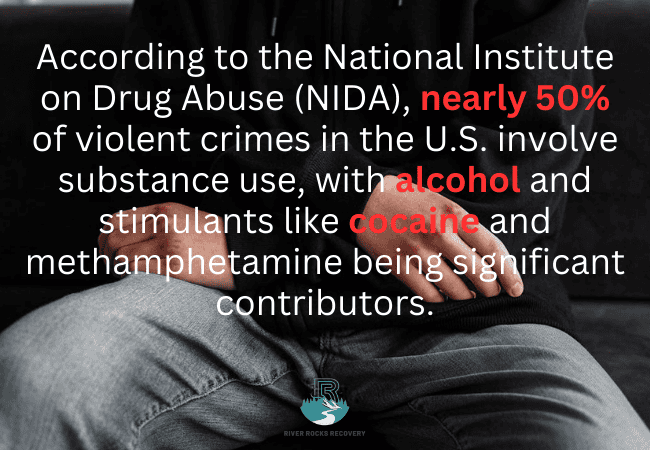Aggression and violence are complex behaviors impacted by a variety of factors, including the environment, personality, and, most importantly, substance use. Certain medications can alter how the brain processes emotions, impair impulse control, and increase aggression in ways that endanger users and those around them.
Understanding the relationship between drug use and aggressiveness helps shed light on why some people act violently while under the influence and what can be done to prevent such instances. So, let’s scroll it down!
How Drugs Influence the Brain’s Aggression Centers
The brain’s aggressiveness centers are controlled by a balance of neurotransmitters such as serotonin, dopamine, and norepinephrine. These substances affect mood, impulse control, and emotional responses. Certain medicines might upset this balance, resulting in aggressive or unpredictable behavior.
Stimulants such as methamphetamine and cocaine, for example, raise dopamine levels, resulting in increased alertness and confidence. When the effects wear off, a “crash” might occur, resulting in irritation and aggression.
Similarly, depressants such as alcohol can weaken inhibitions, making people more inclined to act on aggressive impulses that they would otherwise suppress.
Drugs Commonly Associated With Aggression
While any medication that affects the brain has the potential to cause aggression, some drugs are particularly well-known for their association with violent conduct.
Here’s a closer look at some drugs that have been shown to contribute to violent behavior:
Alcohol: It is perhaps the best-known link between substance use and violence. Alcohol’s effects on the prefrontal cortex—the brain region responsible for decision-making and impulse control—make people more prone to act on unpleasant feelings, resulting in conflicts, domestic violence, and even violent crimes.
Stimulants: Cocaine and methamphetamine can produce dramatic changes in mood and behavior, particularly during the high and following collapse. When under the influence, people may feel unbearable, which can lead to aggressive conduct. When coming down, the sudden decline in dopamine and other “feel-good” neurotransmitters can cause impatience, restlessness, and aggression.
Opioids: While less connected with aggression than stimulants or alcohol, opioids can nonetheless cause aggression in some circumstances. Withdrawal from opioids can be physically and emotionally uncomfortable, causing some people to become impatient and aggressive, especially if they are desperate or addicted.
Anabolic steroids: These are sometimes disregarded but have been linked to an increase in aggressive behavior, also known as “roid rage.” Hormonal shifts cause aggression, which manifests as extreme rage, antagonism, and sometimes physical violence.
The Effects of Drug-Induced Aggression
Drug-induced violence has far-reaching consequences for both individuals and communities. In addition to injuring the users, it endangers family members, friends, and the general public. Domestic violence, child abuse, and community violence are frequently linked to substance abuse, leaving a traumatic legacy that can be difficult to overcome.
Drug-induced aggressiveness has a huge impact on healthcare systems, law enforcement, and social services. Emergency rooms routinely treat people injured in drug-related fights, while police are frequently called to deal with domestic disturbances or violent substance-related occurrences.
Looking for a Drug Addiction Center? Call River Rocks Recovery!
River Rocks Recovery drug addiction treatment center offers a safe and friendly atmosphere in which clients can begin their recovery journey. We provide tailored treatment regimens that target the underlying causes of addiction by integrating medical care, therapy, and holistic health practices.
River Rocks Recovery is dedicated to assisting you to a healthy, substance-free future. Embrace the comprehensive care offered at River Rocks Recovery, and contact us today at (888) 905-6281.





























